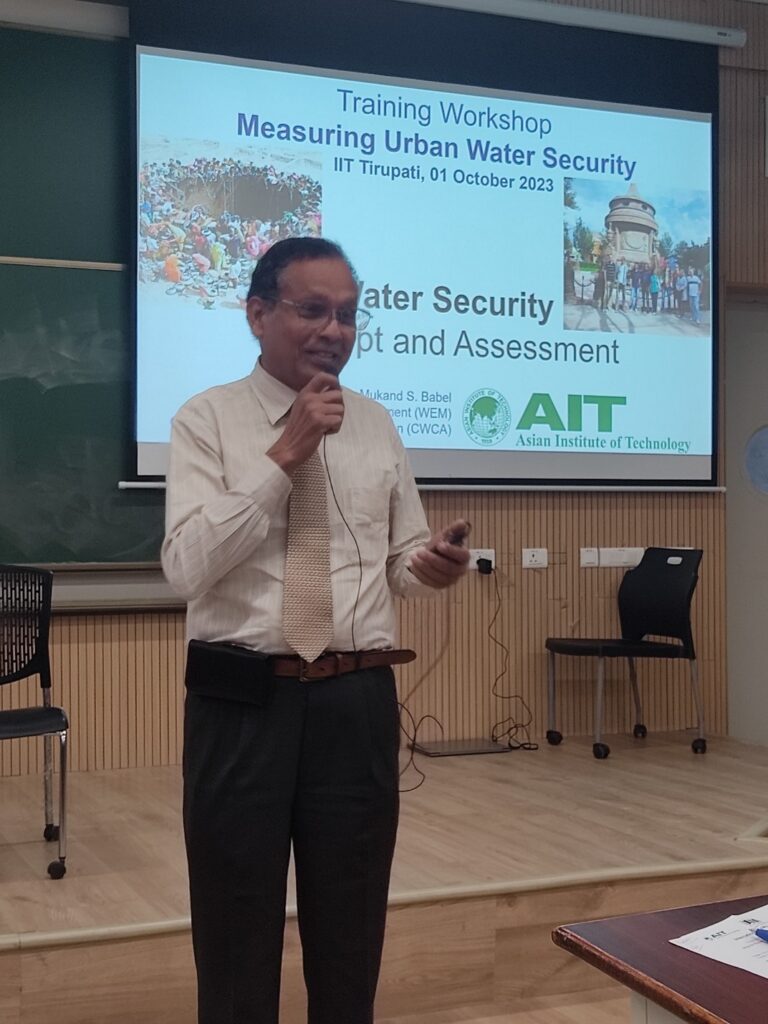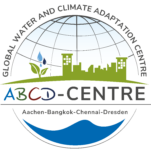WATSAT training workshop at IIT Tirupati, India
Water Security Assessment Tool (WATSAT)
Successful conduction of the training workshop on Water Security Assessment Tool (WATSAT)
The Asian Institute of Technology (AIT), Thailand, and the Indian Institute of Technology (IIT) Tirupati, with support from the Global Water and Climate Adaptation Centre – Aachen, Bangkok, Chennai, Dresden (ABCD-Centre) successfully organized an international training workshop on “How to Measure Urban Water Security? An introduction to the Water Security Assessment Tool (WATSAT)” at the IIT Tirupati, Andhra Pradesh, India on 01 October 2023. The workshop's objective was to promote the capacity building of future water professionals by introducing the WATSAT and making them able to independently assess the water security status at the city scale.
More than 30+ participants attended the training workshop, including students, early-career researchers, practitioners, and government agencies. Dr. Chandra Sekkhar Bahinipati, the Coordinator of the workshop and Assistant Professor at IIT Tirupati extended a warm welcome to the participants. Delivering the opening remarks, Prof. K.N. Satyanarayana, the director of IIT Tirupati, emphasized the critical significance of the water security concept and underscored the workshop's timely relevance for the students of IIT Tirupati and other practitioners.

Prof. Mukand Babel from AIT set the scene by introducing the concept of water security. Mr. Kaushal Chapagain from AIT provided an in-depth description of WATSAT and details of the assessment framework. It was followed by Dr. Dibesh Khadka from AIT, engaging the participants with a hands-on exercise using the tool with a case study. Finally, certificates were distributed to participants by Prof. Sasidhar Gumma, Dean of International and Alumni Affairs at IIT Tirupati, along with Dr. Prasanna V. Sampath, Assistant Professor, IIT Tirupati.
WATSAT is a tool developed at the Asian Institute of Technology to help city authorities and decision-makers objectively evaluate the water security situation in the city. The tool is available at (www.watsat.org) and uses an indicator-based methodology that measures five distinct dimensions of water security, culminating in a Water Security Index (WSI).

